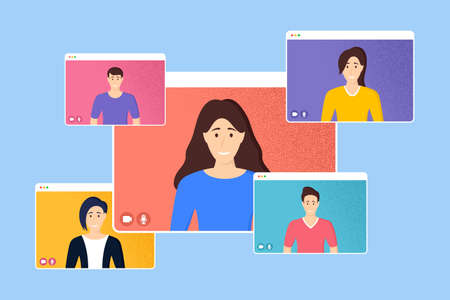Understanding Emotional Intelligence in the Workplace
What Is Emotional Intelligence (EQ)?
Emotional intelligence, often called EQ, is our ability to recognize, understand, and manage our own emotions and the emotions of others. In the American workplace, EQ is not just a buzzword—it’s a vital skill that influences how we connect with coworkers, navigate tough conversations, and drive results. High EQ helps us respond thoughtfully instead of reacting impulsively, especially when facing challenges or differences.
The Core Components of Emotional Intelligence
| Component | Description | Workplace Example |
|---|---|---|
| Self-Awareness | Knowing your strengths, weaknesses, and emotional triggers. | Recognizing when you’re stressed during a team meeting and taking a deep breath before speaking. |
| Self-Management | Controlling your impulses and adapting to change. | Staying calm and professional when a project doesn’t go as planned. |
| Social Awareness | Understanding other people’s feelings and perspectives. | Picking up on a coworker’s discomfort during a group discussion and checking in with them privately. |
| Relationship Management | Building strong, healthy connections with others. | Resolving conflicts respectfully and giving constructive feedback that encourages growth. |
Why EQ Matters for Personal and Professional Growth
In the U.S., workplaces are becoming more diverse than ever. People from different backgrounds bring unique ideas, experiences, and perspectives. EQ helps us appreciate these differences instead of feeling threatened by them. When we can manage our emotions and understand those around us, we build trust and open doors for real conversations about diversity, equity, and inclusion (DEI).
The Impact of EQ on Everyday Work Life
- Better Communication: With high EQ, employees express their thoughts clearly and listen actively to others—creating an environment where everyone feels heard.
- Stronger Teamwork: Teams with emotionally intelligent members handle disagreements maturely and celebrate each other’s wins.
- Inclusive Culture: EQ lays the foundation for respecting differences and making sure all voices matter at work.
- Courage to Grow: Embracing feedback and learning from mistakes becomes easier when we have strong emotional skills—key for both personal development and career advancement in the American workplace.
The American Context: Why It All Matters Here
The United States values individuality but also thrives on collaboration. In a multicultural society like America’s, EQ isn’t just nice to have—it’s essential for navigating cultural nuances, breaking down barriers, and making sure everyone has equal opportunities to contribute. By building emotional intelligence together, American workplaces can lead the way in creating spaces where diversity, equity, and inclusion aren’t just goals—they’re everyday realities that help everyone succeed.
2. The Connection Between EQ and Inclusive Leadership
How Emotionally Intelligent Leaders Shape DEI Culture
In today’s American workplaces, creating a culture of diversity, equity, and inclusion (DEI) is more than just a buzzword—it’s a must-have for innovation and growth. At the heart of this transformation are leaders who show strong emotional intelligence (EQ). These leaders naturally foster environments where everyone feels valued and heard, regardless of their background or identity.
What Makes an Emotionally Intelligent Leader?
| Key EQ Trait | Impact on DEI | Real-World Example |
|---|---|---|
| Self-awareness | Recognizes personal biases, admits mistakes, and seeks feedback to improve inclusivity | A manager apologizes for an insensitive comment and opens up a conversation about cultural awareness with the team |
| Empathy | Understands different perspectives and actively listens to diverse voices | An HR leader checks in with minority employees after a national event that may affect them emotionally |
| Social skills | Builds trust through honest communication and encourages collaboration among team members from varied backgrounds | A project lead organizes team-building activities that celebrate cultural differences |
| Self-regulation | Keeps cool during conflict, models respectful dialogue, and handles sensitive DEI issues thoughtfully | A supervisor calmly addresses a heated discussion about pay equity without taking sides, focusing on solutions instead of blame |
| Motivation | Inspires others to embrace DEI goals by setting a positive example and celebrating small wins along the way | A CEO shares stories of employees whose unique perspectives led to innovative solutions, motivating others to join DEI efforts |
The Ripple Effect: How EQ Drives Inclusion at Every Level
When leaders act with emotional intelligence, it sets the tone for the entire organization. Employees feel safer sharing ideas, speaking up about challenges, and being themselves at work. This kind of environment encourages creativity, attracts top talent from all walks of life, and boosts employee satisfaction—key ingredients for success in the U.S. job market.
Practical Ways U.S. Leaders Use EQ for DEI Success:
- Open Door Policies: Emotionally intelligent managers invite honest conversations and make sure everyone has a seat at the table.
- Cultural Awareness Training: Leaders invest in workshops that help teams understand each other’s backgrounds better.
- Celebrating Diversity: Organizations highlight various heritage months and host events that bring different cultures together.
- Transparent Communication: Leaders share company progress on DEI goals openly—whether it’s good news or areas needing improvement.
- Mental Health Support: Teams get resources that recognize how social identities can impact well-being at work.
This connection between emotional intelligence and inclusive leadership isn’t just theory—it’s what sets apart organizations where everyone thrives.

3. Empathy as a Catalyst for Diverse Teams
What Is Empathy and Why Does It Matter?
Empathy is at the heart of emotional intelligence (EQ). It’s more than just understanding how someone else feels—it’s about putting yourself in their shoes, seeing the world from their perspective, and caring enough to make a difference. In American workplaces, where teams are often made up of people with different backgrounds, cultures, and experiences, empathy helps us bridge gaps and build real connections.
The Role of Empathy in Building Diverse Teams
Diversity isn’t just a buzzword. It’s about making sure everyone has a seat at the table—and that every voice is heard, respected, and valued. When leaders and team members practice empathy, they create an environment where people feel safe to share ideas, express concerns, and show up as their authentic selves. This leads to better collaboration, more creativity, and stronger results.
How Empathy Shows Up in Everyday Team Life
| Situation | Without Empathy | With Empathy |
|---|---|---|
| Team Meetings | Only a few voices dominate the conversation | Everyone gets a chance to speak and be heard |
| Feedback Sessions | Criticism feels harsh or personal | Feedback is given with care and understanding |
| Cultural Differences | Misunderstandings lead to tension or exclusion | Differences are respected and celebrated as strengths |
| Conflict Resolution | Ineffective solutions; resentment lingers | Real listening leads to lasting solutions and trust |
Practical Ways to Grow Empathy on Your Team
- Active Listening: Give your full attention when others speak. Reflect back what you hear to make sure you understand.
- Acknowledge Emotions: Notice when teammates are struggling or excited. A simple “I can see this means a lot to you” goes a long way.
- Cultural Curiosity: Ask questions about others’ backgrounds and experiences. Show genuine interest—everyone loves to be seen.
- Create Safe Spaces: Make it clear that all opinions are welcome. Encourage open discussion without fear of judgment.
- Model Vulnerability: Share your own feelings appropriately. This sets the tone that it’s okay for others to do the same.
The Ripple Effect of Empathy-Driven Diversity
When empathy is woven into the fabric of your team culture, everyone feels empowered to contribute. That’s when diversity turns into true inclusion—and your team becomes unstoppable.
4. Addressing Unconscious Bias Through Self-Awareness
Unconscious bias is something we all carry, no matter our background or intentions. In the American workplace, these hidden attitudes can shape decisions and interactions in ways we might not even notice. The good news? Emotional intelligence—specifically, self-awareness—gives us a powerful tool to recognize and challenge these biases for a fairer, more inclusive environment.
What Is Self-Awareness?
Self-awareness means understanding your own emotions, strengths, weaknesses, values, and how your actions impact others. When you develop this EQ skill, you become better at noticing your automatic thoughts and judgments. This is key for anyone who wants to create a more equitable workplace in America’s diverse culture.
How Self-Awareness Helps Tackle Unconscious Bias
When you’re aware of your own triggers and assumptions, you can pause before reacting—and choose a response that’s fair and respectful. Here’s how self-awareness turns into real change:
| Situation | Without Self-Awareness | With Self-Awareness |
|---|---|---|
| Reviewing Job Applications | You might favor resumes from people with similar backgrounds to yours without realizing it. | You notice your preference and make an effort to evaluate all candidates on skills and experience alone. |
| Team Discussions | You may unintentionally interrupt or dismiss ideas from quieter team members. | You catch yourself and intentionally invite everyone’s input, making space for diverse voices. |
| Giving Feedback | You could be harsher or softer with certain employees based on unconscious stereotypes. | You reflect on whether your feedback is fair and consistent across the board. |
Everyday Practices for Building Self-Awareness
- Check Your Gut: When you have a strong reaction to someone or something, pause and ask yourself why.
- Seek Feedback: Encourage coworkers to share their perspective about your behavior—you might discover blind spots.
- Reflect Regularly: Spend a few minutes each day thinking about what went well and what you could handle differently next time.
- Educate Yourself: Read about common biases in American workplaces so you know what to watch for in yourself.
The Impact on Diversity, Equity, and Inclusion
By practicing self-awareness, American employees and leaders can break old patterns and start new conversations. It creates space for different voices and backgrounds at every table—helping everyone feel respected and valued. That’s the heart of DEI: not just seeing differences but using them as strengths to build better teams, stronger companies, and brighter futures together.
5. Fostering Psychological Safety for All
Why Psychological Safety Matters
In today’s American workplace, teams are made up of people with different backgrounds, experiences, and perspectives. To truly unlock the power of Diversity, Equity, and Inclusion (DEI), team members must feel safe to speak up, share ideas, and be themselves. This sense of security is known as psychological safety—knowing you won’t be punished or humiliated for being honest or making a mistake.
The Link Between Emotional Intelligence and Psychological Safety
High emotional intelligence (EQ) is the foundation for building psychologically safe spaces. When leaders and team members have strong EQ, they’re better at understanding emotions—their own and others’. This empathy drives behaviors that help everyone feel respected and heard. Here’s how higher EQ supports psychological safety:
| EQ Skill | How It Boosts Psychological Safety |
|---|---|
| Self-Awareness | Recognizes personal biases and emotional triggers so reactions are thoughtful, not defensive. |
| Empathy | Makes it natural to listen deeply to others’ feelings and viewpoints without judgment. |
| Self-Regulation | Keeps emotions in check during tough conversations, creating a calm and open atmosphere. |
| Social Skills | Encourages collaboration by handling conflict respectfully and building trust among teammates. |
Real-Life Ways to Create Psychologically Safe Spaces
- Invite Every Voice: High-EQ leaders regularly ask quieter team members for their input, ensuring no one is left out of discussions.
- Celebrate Mistakes as Learning: When someone makes an error, emotionally intelligent teams focus on growth instead of blame, making it easier for everyone to take creative risks.
- Acknowledge Emotions: Teams with high EQ check in on each other’s feelings—especially during big changes—to show care beyond just the work.
Example: A Safe Space in Action
Imagine a project meeting where an introverted colleague suggests a new approach. Instead of dismissing the idea or rushing past it, the team leader (with high EQ) says, “Thank you for sharing. Can you tell us more about your thinking?” This simple act signals respect and curiosity—key ingredients for psychological safety.
The Takeaway
When everyone feels safe to bring their full selves to work, innovation flourishes. High EQ isn’t just a soft skill—it’s a powerful tool for creating inclusive environments where all voices can shine.
6. Everyday EQ Practices for Inclusive Workplaces
Emotional Intelligence (EQ) is not just a buzzword—it’s a real skill set that can transform how we interact and work together, especially when it comes to Diversity, Equity, and Inclusion (DEI) in American workplaces. Here are some practical EQ habits you can use every day to help create a more inclusive environment, no matter your role or background.
Building Awareness: Listen First, Speak Second
Active listening is at the heart of emotional intelligence. In diverse teams, everyone brings unique experiences to the table. Before jumping in with your own ideas or opinions, make it a habit to truly listen. This means focusing on the speaker, asking clarifying questions, and reflecting back what you heard. Not only does this show respect, but it also helps you understand perspectives different from your own—essential for equity and inclusion.
Empathy in Action: Small Gestures, Big Impact
Empathy is about putting yourself in someone else’s shoes. Even small acts—like remembering a coworker’s preferred pronouns or acknowledging cultural holidays—can go a long way in making people feel valued. When someone shares their challenges or experiences with discrimination, validate their feelings instead of dismissing them or offering quick fixes.
Table: Simple EQ Habits for Everyday Inclusion
| EQ Habit | How It Supports DEI | Example in Action |
|---|---|---|
| Practice Mindful Listening | Makes all voices feel heard | Letting someone finish before responding during meetings |
| Show Empathy | Builds trust across differences | Acknowledging when a colleague shares a personal challenge |
| Ask Open-Ended Questions | Encourages diverse perspectives | “How do you see this project supporting our team’s goals?” |
| Cultural Curiosity | Promotes respect for diversity | Learning about a teammate’s cultural background or traditions |
| Self-Reflection | Keeps biases in check and grows self-awareness | Taking time after meetings to consider if everyone had space to contribute |
| Give Constructive Feedback Kindly | Makes feedback safe and helpful for all backgrounds | Phrasing input as “I noticed…” instead of “You always…” |
Culturally Relevant Communication: Speak Up & Support Others
The American workplace values openness, but also expects respect. Use emotionally intelligent communication by being clear about your intentions and open to feedback. If you notice microaggressions or exclusion happening—whether subtle or obvious—speak up with kindness and offer support to those affected. Being an ally sometimes means having tough conversations, but EQ helps you approach these moments thoughtfully.
Create Safe Spaces for Everyone to Share
Diverse voices thrive when they feel psychologically safe. If you’re leading a meeting or brainstorming session, invite quieter team members to share their thoughts without putting them on the spot. You can say things like, “We haven’t heard from everyone yet—does anyone else want to add something?” This simple habit encourages participation from all backgrounds and experience levels.
Your Daily EQ Checklist for Inclusion:
- Check Your Own Biases: Notice your reactions and ask yourself why you feel that way.
- Acknowledge Differences: Celebrate what makes each person unique.
- Practice Patience: Give others time to express themselves fully.
- Offer Encouragement: Recognize others’ efforts toward inclusion.
- Stay Curious: Keep learning about cultures and identities beyond your own.
- Sustain the Effort: Consistency matters more than perfection—show up every day with intention.
By weaving these emotional intelligence practices into your daily work life, you’ll help build an environment where diversity is celebrated, equity is championed, and everyone feels included—one conversation at a time.
7. Conclusion: The Future of Work with EQ and DEI
Embracing a New Workplace Culture
Imagine walking into an office where every voice is heard, every difference respected, and everyone feels safe to be themselves. This is not just an ideal—it’s the direction American workplaces are heading when emotional intelligence (EQ) and diversity, equity, and inclusion (DEI) go hand in hand. EQ helps us understand our own emotions and those of others, making it easier to build trust, resolve conflicts, and create a sense of belonging for all.
The Positive Ripple Effect
When leaders and teams practice both EQ and DEI, they spark powerful changes that reach far beyond the office walls. Here’s how integrating EQ and DEI transforms the workplace:
| With EQ Only | With DEI Only | With Both EQ & DEI |
|---|---|---|
| Improved communication Better teamwork Less conflict |
Diverse perspectives Fair opportunities Inclusive policies |
Deeper empathy Belonging for all Innovation thrives Stronger relationships |
Leading by Example: Small Steps Matter
You don’t need to be the CEO to drive change. Every conversation matters—whether you’re supporting a colleague who feels left out or welcoming new ideas from someone with a different background. When you show empathy, listen actively, and champion fairness, others notice. These simple actions create a ripple effect that inspires your entire team.
Your Role in Shaping Tomorrow’s Workplace
The future of work is about more than technology or profits; it’s about people growing together. By blending emotional intelligence with a commitment to diversity, equity, and inclusion, we can build workplaces where everyone feels valued and empowered. Let’s take the first step today—because when we lead with heart and open minds, we set a powerful example for others to follow.


